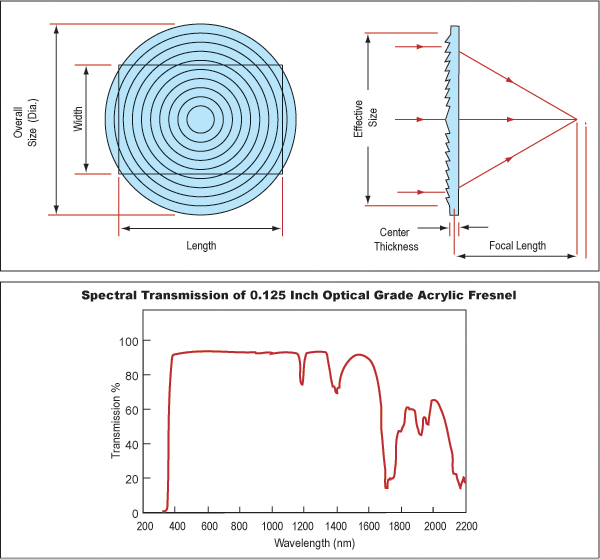
Aspherically Contoured Fresnel Lenses are thin, flat lenses for focusing applications. A Fresnel lens replaces the curved surface of a conventional lens with a series of concentric grooves, molded into the surface of a thin, lightweight plastic sheet. The grooves act as individual refracting surfaces, like tiny prisms when viewed in cross section, bending parallel rays in a very close approximation to a common focal length. Aspherically Contoured Fresnel Lenses are thin, so very little light is lost by absorption. Fresnel lenses are a compromise between efficiency and image quality. High groove density allows higher quality images, while low groove density yields better efficiency (as needed in light gathering applications). In infinite conjugate systems, the grooved side of the lens should face the longer conjugate.
Fresnel lenses are most often used in light gathering applications, such as condenser systems or emitter/detector setups. Fresnel lenses can also be used as magnifiers or projection lenses; however, due to the high level of distortion, this is not recommended.

or view regional numbers
QUOTE TOOL
enter stock numbers to begin
Copyright 2023, Edmund Optics India Private Limited, #267, Greystone Building, Second Floor, 6th Cross Rd, Binnamangala, Stage 1, Indiranagar, Bengaluru, Karnataka, India 560038
California Consumer Privacy Acts (CCPA): Do Not Sell or Share My Personal Information
California Transparency in Supply Chains Act
The FUTURE Depends On Optics®